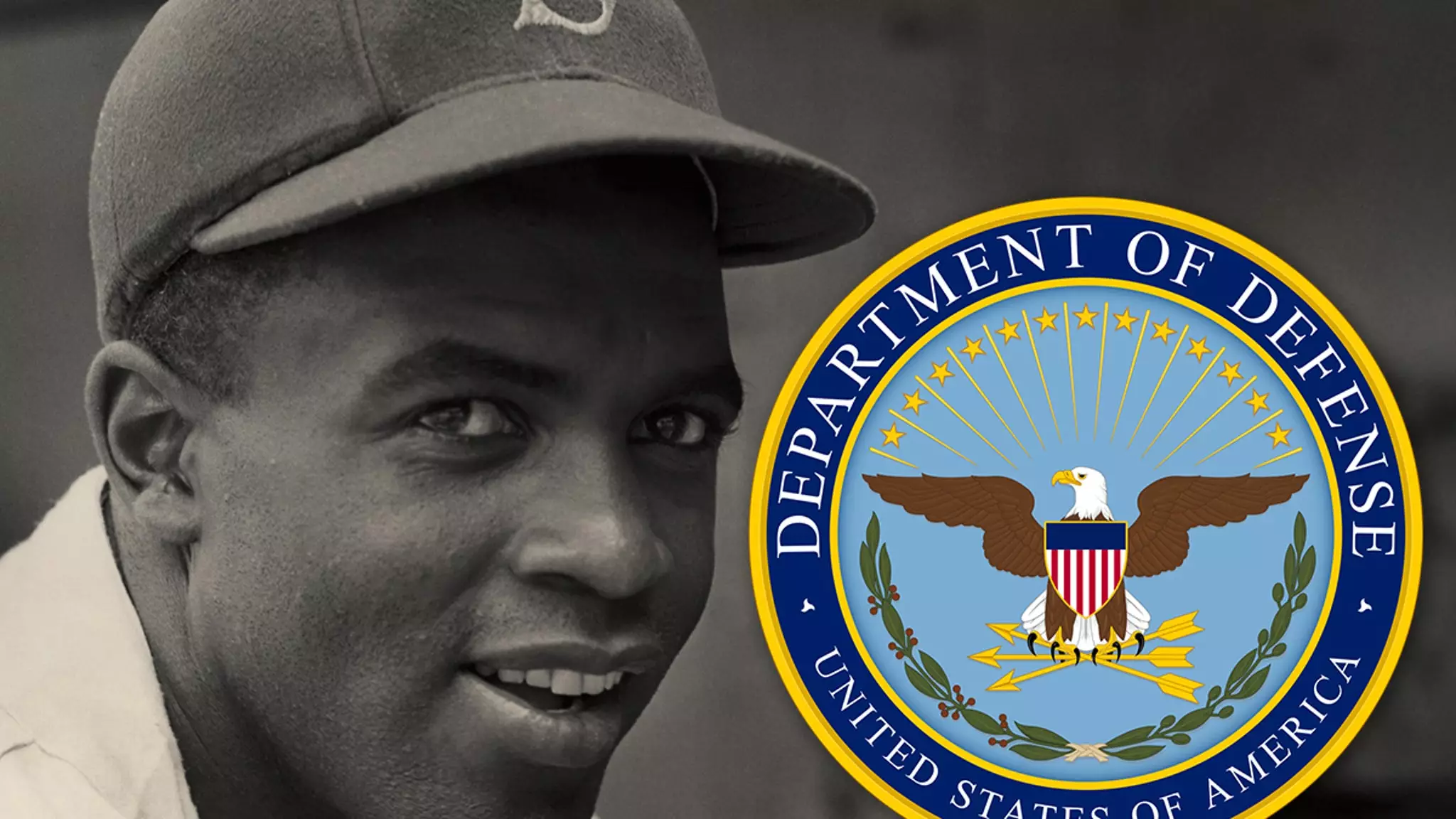The recent re-emergence of Jackie Robinson’s story on the Department of Defense website reveals a perplexing intersection of military history and social policy. Initially taken down due to alleged conflicts with the Defense Department’s stance on Diversity, Equity, and Inclusion (DEI), the article’s removal sparked a significant public outcry. This incident raises crucial questions: Was the takedown a deliberate act of ideological purging, or was it a mere oversight? The conflicting messages from Pentagon officials underscore the internal turmoil regarding how military institutions grapple with contemporary cultural narratives, particularly those emphasizing inclusion and equity.
Despite the initial backlash prompting its restoration, the incident highlights a broader ideological struggle within the military establishment. Pentagon Press Secretary John Ullyot’s statements convey a stark dismissal of DEI as associated with “Woke cultural Marxism.” The very terminology used reflects a polarizing view that sees integration and equity as threats to unit cohesion and military efficacy. While it’s essential to maintain operational integrity, one must wonder if this hardline stance overlooks the unifying potential of recognizing diverse contributions to American history.
Jackie Robinson: More Than a Baseball Legend
Jackie Robinson is primarily celebrated for his groundbreaking achievements in Major League Baseball, but his military service deserves equal recognition. Drafted in 1942, he demonstrated remarkable bravery and integrity during a tumultuous time in U.S. history. Serving as a second lieutenant in the 761st “Black Panthers” tank battalion, Robinson faced challenges that transcended the battlefield. His experiences in the military not only showcased his leadership qualities but also highlighted the systemic racial issues prevalent in American society. This duality of Robinson’s legacy exemplifies the complexity of race relations whether on the diamond or the front lines.
In times of national crisis, figures like Robinson symbolize not just athletic prowess but a deeper commitment to equality and justice. His contributions during World War II are often overshadowed by his post-war achievements, but they deserve acknowledgment as critical aspects of his character. Such recognition can foster a more nuanced understanding of American heroes—who they are, what they stood for, and how their legacies are treated by institutions like the Department of Defense.
Public Sentiment and Historical Responsibility
The public outcry that led to the swift reinstatement of Robinson’s story on the Department of Defense website illustrates a collective yearning to confront and embrace America’s multifaceted history. Citizens today demand that their heroes be honored for their contributions, regardless of contemporary political agendas. This incident is not merely a case of a historical biography being censored; it is indicative of a societal struggle to define heritage in the context of persistent inequities.
Moreover, the response from military officials, particularly regarding Robinson’s service, underscores a critical inconsistency. Acknowledging figures like Robinson alongside other military heroes such as the Navajo Code Talkers and the Tuskegee Airmen is vital in creating a comprehensive account of American valor. This recognition does not dilute the military’s core mission; rather, it enriches the tapestry of what it means to serve and sacrifice for one’s country.
In an era where the call for inclusivity is as fervent as the fight for equality was during Robinson’s time, the actions of the Department of Defense may serve as both a reflection of progress and a reminder of ongoing challenges. The legacy of Jackie Robinson—a trailblazer in so many ways—should not merely be a chapter in the history books but rather a living testament to the values that the military and society at large continue to aspire to uphold.

Leave a Reply